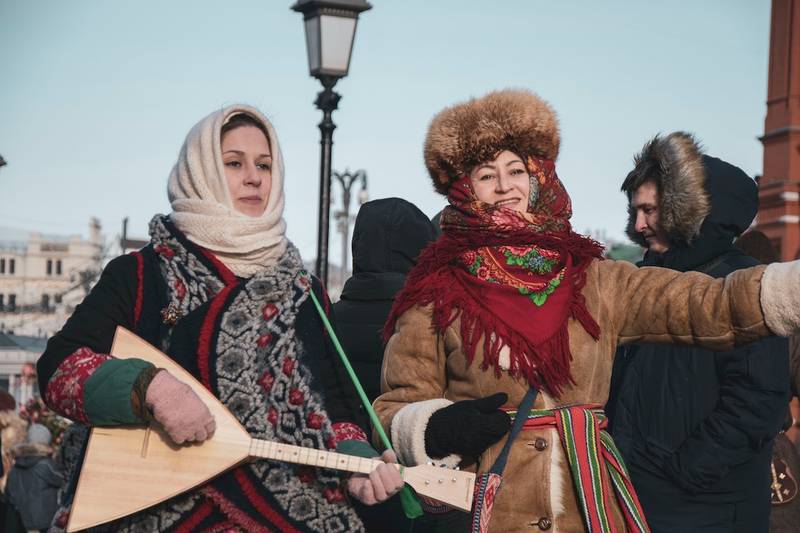Most beginners would say Russian is pretty weird and Cyrillic, or just plain scary.
Is learning the Russian alphabet really that hard? Read on to find out everything you need to know about pronunciation of the Russian alphabet, including expert tips and tricks on how to read and speak Russian!
What is Cyrillic and why does Russian use it?
In essence, the early Cyrillic alphabet was created by the disciples of missionaries, St. Cyril and St.Methodius, to proselytize in the Old Slavonic language. The Russian Orthodox Church, the main educator at the time, then adopted Old Slavonic as its official language. As a result, inhabitants of Old Rus’ began to put down their spoken language – Old Russian dialects – in Cyrillic, thus starting the history of the Old Russian language. Before that happened, Old Russian was a colloquial and not a literary language.
Which other languages use Cyrillic?
Did you know Cyrillic is used by more than 50 languages?
Belarusian, Bulgarian, Kazakh, Kyrgyz, Macedonian, Montenegrin, Russian, Serbian, Tajik, Turkmen, Ukrainian, and Uzbek are all based on the Cyrillic in one way or another, meaning that some languages use it exclusively, whereas others as one of several alphabets.

Mastering the Cyrillic alphabet takes practice – Image source
What sounds does the Russian language consist of and how do they map to the written characters?
There are 33 letters in the Russian alphabet: 10 vowels, 21 consonants, and two signs (ь and ъ).
Let’s get to learning the Russian alphabet and its pronunciation without further ado, as well as get a glimpse at Russian handwriting!
| Russian Character / Printed | Russian Pronunciation | Important Notes |
|---|---|---|
| А а | Like [а] in car if stressed, as in как. Like [а] in how if unstressed, as in какой | Can be stressed or unstressed |
| Б б | Like [b] in be if voiced, as in быть. Like [p] in pat if voiceless, as in клуб | Can be voiced or voiceless |
| В в | Like [v] in van if voiced, as in вы. Like [f] in fake if voiceless, as in кровь | Can be voiced or voiceless |
| Г г | Like [g] in go if voiced, as in год. Like [k] in key if voiceless, as in блог | Can be voiced or voiceless |
| Д д | Like [d] in did if voiced, as in да. Like [t] in tea if voiceless, as in вход | Can be voiced or voiceless |
| Е е | Like [ye] in yet when the first letter, after vowels or after ь and ъ, as in есть. After consonants: like [e] in devil as in нет or [i] in miss as in немного | Pronunciation changes depending on the position of the letter |
| Ё ё | Like [yo] in your being the first letter, after vowels or after ь and ъ, as in ёлка. Like [o] in bot after consonants, as in всё | Ё is ALWAYS stressed; ё is not always written with dots, meaning that every e you meet could be ё |
| Ж ж | Like [zh] in measure if voiced, as in жук. Like [sh] in shame if voiceless, as in паж | Can be voiced or voiceless |
| З з | Like [z] in zebra if voiced, as in зебра. Like [s] in seen if voiceless, as in близко | Can be voiced or voiceless |
| И и | Like [ee] in see, as in видеть. Like [i] in brilliant after ж, ш, ц, as in машина | Can be stressed or unstressed |
| Й й | Like [y] in toy, as in мой | |
| К к | Like [k] in kitten, as in котёнок | |
| Л л | Like [l] in lion, as in лев | |
| М м | Like [m] in mom, as in мама | |
| Н н | Like [n] in nose, as in нос | |
| О о | Like [o] in dot if stressed, as in точка. Like [а] in fat if unstressed, as in этот | Can be stressed or unstressed |
| П п | Like [p] in papa, as in папа | |
| Р р | Like [r] in run, as in рука | |
| С с | Like [s] in soy, as in соя | |
| Т т | Like [t] in ton, as in тонна | |
| У у | Like [oo] in boot, as in русский | Can be stressed or unstressed |
| Ф ф | Like [f] in photo, as in фото | |
| Х х | Like [h] in hello, as in хохот | |
| Ц ц | Like [ts] in hits, as in цепь | |
| Ч ч | Like [tch] in teacher, as in учитель | |
| Ш ш | Like [sh] in shop, as in шопинг | |
| Щ щ | Like [shsh] in sheep, as in щука | |
| Ъ ъ | Letter before is hard, as in въезд | ъ is a sign that is not pronounced |
| Ы ы | Like [i] in ill, as in ты | Can be stressed or unstressed |
| Ь ь | Letter before is soft, as in есть | ь is a sign that is not pronounced |
| Э э | Like [e] in bet, as in это | Can be stressed or unstressed |
| Ю ю | Like [yu] in union, as in юла | Can be stressed or unstressed |
| Я я | Like [ya] in yard when the first letter, after vowels or after ь and ъ, as in я. Like [a] or [i] after consonants, as in имя or десять, respectively | Pronunciation changes depending on the position of the letter |

Photo by Victoria Akvarel
How to read Russian like a pro
How to read Russian? Easy. Start by learning the Russian alphabet! All jokes aside, there are two must-know tips that will help you learn to read Russian like a pro.
Tip #1: Learn the most common Russian words
This will entirely depend on what you’re learning Russian for – business, travel, pleasure, or something else. Whatever your purpose, find the words most commonly used in a specific context to polish your reading skills, which will give you a strong base to build upon.
Tip #2: Start with the friendly cognates
Cognates are words in two languages that share a similar meaning, spelling, and even pronunciation, such as airport and аэропорт.
Look for cognates. Russian and English may look very different, but they have a lot of similar letters and words.

Start speaking Russian fluently, fast.
How to speak Russian and sound like a native
If we could give you only one tip on how to speak Russian, it would be to PRACTICE. No rocket science there.
Starting out, it’s better to learn Russian using audio samples or to find a native to get the pronunciation right from the start.

The most well-known Russian folk song is probably Калинка (Kalinka) – Photo by Aghyad Najjar
What’s the best way to learn Russian?
Everyone wants to know how to learn a foreign language as quickly and as effortlessly as possible, and to speak it well. The truth is that good language speakers are made, not born.
Lingvist has got you covered! There are certain steps to follow to develop decent language skills – fast.
1 - Speak right from the start
Even to yourself. Our best advice is to speak Russian from day one, also when learning the Russian alphabet.
2 - Learn every day
Find your pace. It could be anything from five minutes to an hour a day, but consistency is key.
3 - Let everything you learn sink in
No matter how fast a learner you are, take your time to digest everything you’ve learned. Speak it aloud and practice Russian handwriting.
4 - Read as much as you can
This goes without saying. There are plenty of online resources available on how to read Russian and, most importantly, where to find suitable material.
5 - Use a language app
…Such as Lingvist – an excellent choice! With us, you’ll master a new language faster and in a more efficient way. We’ve carefully selected vocabulary that you really need and can help you improve your Russian in as little as 30 minutes per day. As if that wasn’t good enough, you’ll acquire the syntax and grammar on the go by learning new vocabulary in real-life contexts.
Want to learn more? Take your Russian to the next level with Lingvist.

